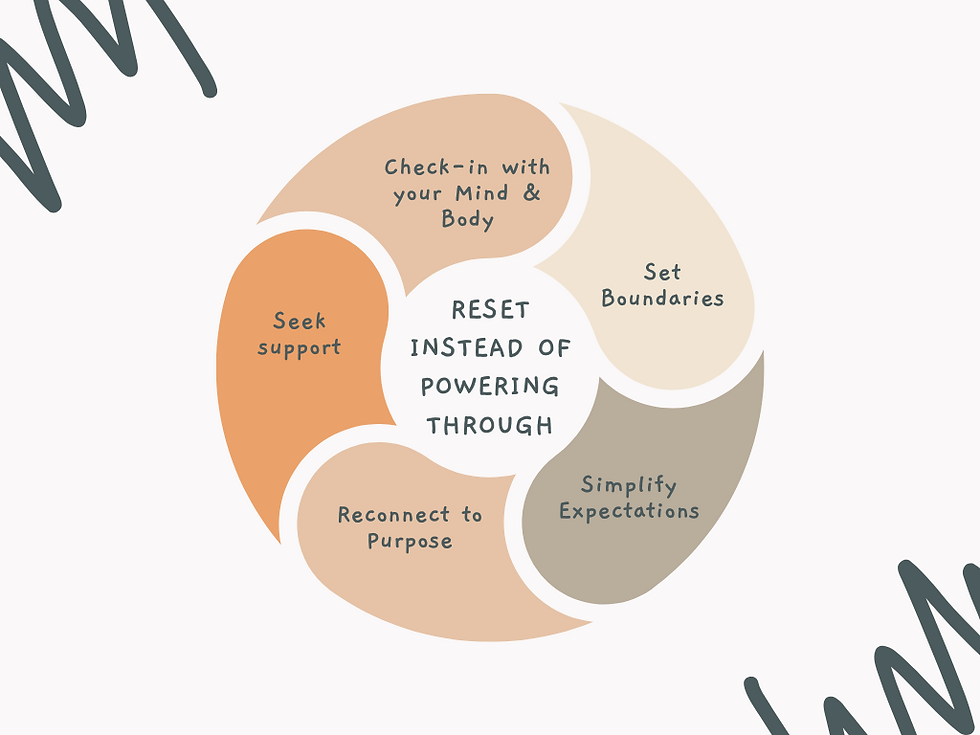Unlock Your Mental Wellness: 10 Essential Self-Care Tips for Mental Health Awareness Month
- endurancementalhea
- May 22, 2024
- 3 min read
May is Mental Health Awareness Month, and at Endurance Mental Health & Wellness, we're committed to fostering conversations about mental health in our community. This month, as we reflect on the experiences of individuals navigating their mental health journeys, we emphasize the importance of destigmatizing these conversations. Our mission is to provide a safe space for help, sharing, and healing, and we invite you to join us as we share resources and stories throughout May. Follow us on Instagram and Facebook to get involved and help create a world where mental health is valued and understood.

Taking care of your mental health is just as crucial as caring for your physical well-being. Incorporating self-care practices into your daily routine can help you manage stress, improve your mood, and enhance overall well-being. Here are ten self-care tips to consider:
1. Practice Mindfulness: Set aside a few moments each day for mindfulness exercises such as meditation, deep breathing, or simply focusing on the present moment. Mindfulness can help reduce anxiety, enhance concentration, and promote relaxation. Start by setting your alarm a few minutes earlier each day to prioritize this practice.
2. Stay Active: Regular physical activity not only benefits your body but also your mental health. Find an activity you enjoy, whether it's walking, yoga, dancing, or gardening, and make it a regular part of your routine. Exercise releases endorphins, which are natural mood lifters. Treat your exercise time as important appointments in your weekly calendar.
3. Get Adequate Sleep: Prioritize getting 7-9 hours of quality sleep each night to recharge your body and mind. Establish a relaxing bedtime routine and create a comfortable sleep environment free of distractions. Set an alarm to remind yourself to wind down at night.
4. Connect with Others: Maintain social connections with friends, family, and support networks. Spend time with loved ones, engage in meaningful conversations, and seek support when needed. Strong social connections are crucial for emotional well-being. Schedule outings with friends or family members to protect this time.
5. Set Boundaries: Learn to set healthy boundaries to protect your time and energy. Say no to activities or commitments that drain you and prioritize those that bring you joy and fulfillment. Remember, it's okay to prioritize your own needs.
6. Engage in Hobbies: Make time for activities that bring you pleasure and relaxation, whether it's reading, painting, cooking, or playing a musical instrument. Engaging in hobbies can provide a sense of accomplishment and reduce stress.
7. Limit Screen Time: Set boundaries around your use of technology and screen time, especially before bedtime. Too much exposure to screens can disrupt sleep patterns and increase stress. Set your screen to dim at certain times of the day as a signal to wind down.
8. Practice Gratitude: Cultivate a sense of gratitude by focusing on the things you're thankful for each day. Keep a gratitude journal and write down three things you're grateful for daily. Practicing gratitude can promote a positive outlook and reduce negativity.
9. Seek Professional Help: Don't hesitate to reach out for professional help if you're struggling with your mental health. Therapists, counselors, and psychiatrists are trained to provide support and guidance. Seeking help is a sign of strength, not weakness.
10. Be Kind to Yourself: Treat yourself with kindness and compassion, just as you would a friend. Practice self-compassion and forgive yourself for any perceived shortcomings.

Prioritizing self-care is essential for maintaining good mental health. Incorporate these self-care tips into your daily life to promote emotional well-being and resilience, especially during Mental Health Awareness Month. If you're experiencing persistent mental health challenges, don't hesitate to reach out to our office for support and guidance. We're here to help you on your journey toward better mental health.



